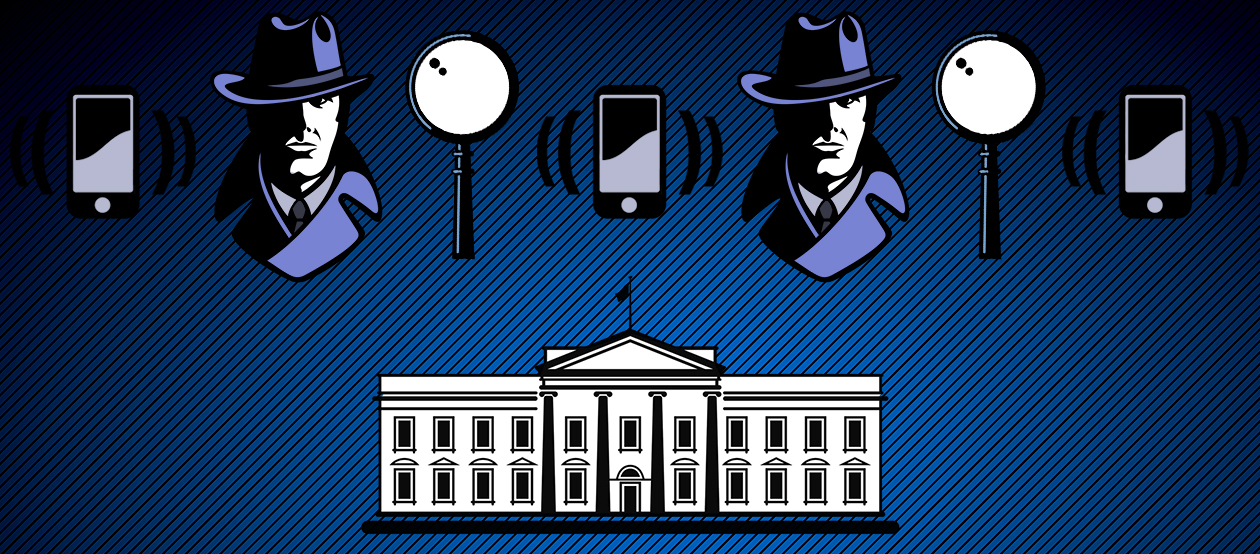4 reasons the NSA scandal is troubling


A free daily email with the biggest news stories of the day – and the best features from TheWeek.com
You are now subscribed
Your newsletter sign-up was successful
Having laid out some reasons why there is less to the NSA scandal than meets the all-hearing hear, I turn now to several reasons why the agency's actions might merit the "scandal" designation.
1. The NSA is the most powerful single institution in the world. It can collect more information, more quickly, and cause action from that information, more efficiently than any company, country, or intelligence entity. Even if no one accused the NSA of doing anything wrong, it is the interest of a freedom-seeking society to layer in as much transparency as possible for no other reason than that there is really no historical precedent for an organization that large with that much power not abusing it, whether incidentally or deliberately. See here.
2. To say that NSA collection does not infringe upon real rights is naive at best. NSA shares information about U.S. persons with the FBI, which acts upon that information. It is impossible to tell how many FBI investigations were initiated because of NSA tips, but we know there are many. We also know that many FBI investigations do not pan out. By some principle of inference, we must conclude that some of the information NSA passed along to the FBI about U.S. persons was used to initiate investigations that turned an imagined fear of surveillance into a factual one. Also: We know that NSA intelligence helped persuade the U.S. government to detain innocent Afghanis, Yemenis, and Pakistanis, some of whom have yet to be released from Guantanamo Bay. And Gitmo's existence is not conducive to American freedom. We do not know whether NSA information, tear-lined, is used by agencies like the DEA or Customs and Border Patrol to harass innocent Americans.
The Week
Escape your echo chamber. Get the facts behind the news, plus analysis from multiple perspectives.

Sign up for The Week's Free Newsletters
From our morning news briefing to a weekly Good News Newsletter, get the best of The Week delivered directly to your inbox.
From our morning news briefing to a weekly Good News Newsletter, get the best of The Week delivered directly to your inbox.
3. The Director of National Intelligence lied to Congress about whether the NSA collects any information at all in bulk on Americans. (I accept his explanation that he felt a greater obligation to protect a still-secret program that his overseers already knew about, but his actions are what they are.) The NSA has been unable to clearly articulate why it needs the information and cannot point to a case where, "but for" the metadata program, a terrorist act would have taken place. NSA officials speak their own language, and deliberately or not, seem to have confused the hell out of Congress during briefings even before the Snowden revelations. Its secrecy culture is as embedded in its marrow as is its disinclination to collect on Americans, and the former is way out of synch with the way the world works today. If the NSA is hiding nothing, the onus is on the NSA to prove it to the best of its ability. The onus is not and cannot be on critics who do not have access to the secret laws authorizing secret programs, much less to the programs themselves.
4. NSA's compliance efforts are not sufficient. Analysts do not have the fear of God put into them if they accidentally mess up a query. The intelligence community wants its analysts to be creative and to work without fearing that a misapplication of a keystroke could lead to the revocation of their security clearance. If the American people believe that their phone conversations and the content of their emails is sacrosanct, then the sanctions for inadvertently accessing it must be higher. The balance must, in the practice of content analysis and collection, be tipped away from the analyst's discretion. On the other hand, if technology makes this impossible, then the NSA must find find new technology, reward those who invent it, and explain in far more detail to Congress and to the courts why they have trouble. Maybe they've done this. We don't know. We do know that the NSA by its own admission often has significant compliance problems. Now we must know why.
A free daily email with the biggest news stories of the day – and the best features from TheWeek.com
Marc Ambinder is TheWeek.com's editor-at-large. He is the author, with D.B. Grady, of The Command and Deep State: Inside the Government Secrecy Industry. Marc is also a contributing editor for The Atlantic and GQ. Formerly, he served as White House correspondent for National Journal, chief political consultant for CBS News, and politics editor at The Atlantic. Marc is a 2001 graduate of Harvard. He is married to Michael Park, a corporate strategy consultant, and lives in Los Angeles.
-
 What is the endgame in the DHS shutdown?
What is the endgame in the DHS shutdown?Today’s Big Question Democrats want to rein in ICE’s immigration crackdown
-
 ‘Poor time management isn’t just an inconvenience’
‘Poor time management isn’t just an inconvenience’Instant Opinion Opinion, comment and editorials of the day
-
 Bad Bunny’s Super Bowl: A win for unity
Bad Bunny’s Super Bowl: A win for unityFeature The global superstar's halftime show was a celebration for everyone to enjoy
-
 The recycling crisis
The recycling crisisThe Explainer Much of the stuff Americans think they are "recycling" now ends up in landfills and incinerators. Why?
-
 The L.A. teachers strike, explained
The L.A. teachers strike, explainedThe Explainer Everything you need to know about the education crisis roiling the Los Angeles Unified School District
-
 The NSA knew about cellphone surveillance around the White House 6 years ago
The NSA knew about cellphone surveillance around the White House 6 years agoThe Explainer Here's what they did about it
-
 America's homelessness crisis
America's homelessness crisisThe Explainer The number of homeless people in the U.S. is rising for the first time in years. What’s behind the increase?
-
 The truth about America's illegal immigrants
The truth about America's illegal immigrantsThe Explainer America's illegal immigration controversy, explained
-
 Chicago in crisis
Chicago in crisisThe Explainer The "City of the Big Shoulders" is buckling under the weight of major racial, political, and economic burdens. Here's everything you need to know.
-
 The bad news about ISIS's defeat in Ramadi
The bad news about ISIS's defeat in RamadiThe Explainer The contours of a broader sectarian war are coming into focus
-
 America can still destroy the world
America can still destroy the worldThe Explainer The decline of U.S. military power has been greatly exaggerated
